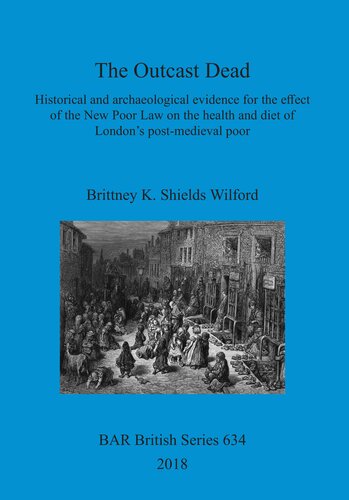

Most ebook files are in PDF format, so you can easily read them using various software such as Foxit Reader or directly on the Google Chrome browser.
Some ebook files are released by publishers in other formats such as .awz, .mobi, .epub, .fb2, etc. You may need to install specific software to read these formats on mobile/PC, such as Calibre.
Please read the tutorial at this link: https://ebookbell.com/faq
We offer FREE conversion to the popular formats you request; however, this may take some time. Therefore, right after payment, please email us, and we will try to provide the service as quickly as possible.
For some exceptional file formats or broken links (if any), please refrain from opening any disputes. Instead, email us first, and we will try to assist within a maximum of 6 hours.
EbookBell Team

0.0
0 reviewsAdopting a multidisciplinary approach, this work presents an integration of osteological and historical evidence to examine the detrimental impact of the workhouse on inmates in nineteenth-century London and to assess whether the 1834 change to the English Poor Laws led to deterioration in health. Due to the new legalities of the New Poor Laws, reformers sought to create a nationalised system of welfare, which culminated in the establishment of the Union workhouse. All aspects of daily life were influenced within the institution, in an attempt to instil the 'virtues of the independent labourer'. It is hypothesised that the effects of the New Poor law would have exposed inmates to episodes of dietary deficiencies and infectious disease, detectable in the osteological record. This was investigated utilising published osteological data for five Post-Medieval London cemeteries and four associated historical registers of burials.